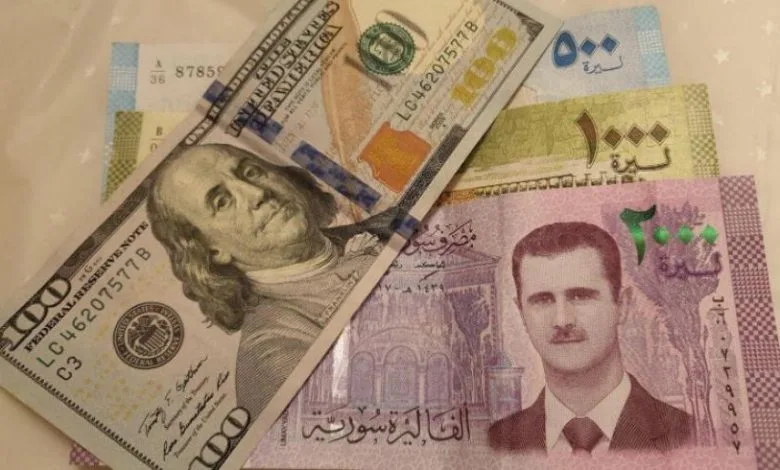The Central Bank of Syria set the currency exchange rate, on Tuesday, at 15075 pounds against the dollar in official transactions and in any operations with banks or exchange companies, thereby reducing the value of the currency in the second price bulletin it officially issues since the overthrow of the Bashar al-Assad regime on the eighth of December.
The bank set the lira exchange rate on Monday at 12,562 lira against the dollar, marking the first time it has set the exchange rate since the overthrow of Assad and officially unifies the exchange rate with state institutions and Exchange Companies.
Several official exchange rates were used during Assad’s rule for government transactions such as budget accounts, exchange companies, for money transfers from abroad and for UN agencies.
There were other prices on the black market, but the use of foreign currencies in daily business transactions could have previously led to imprisonment, and many Syrians were afraid to even utter the word “dollar” in public.
Syria has suffered from an economic crisis in recent years caused by the conflict, strict Western sanctions, as well as currency shortages, due in part to the financial collapse in neighboring Lebanon and Assad’s loss of oil fields in the northeast of the country.
The sharp depreciation of the Syrian pound has pushed most Syrians below the poverty line with meager wages in the public sector and the collapse of a number of industries.
Assad’s rapid loss of territory in the days leading up to his ouster from Damascus led to fluctuations in black market exchange rates.
The last time the central bank set the exchange rate under Assad was on the fifth of December, when there were still separate exchange rates of 13668 against the dollar for banks and financial institutions and 12562 against the US currency for use in the state budget.

The lira apparently rose after the fall of Assad, with exchange companies in Damascus setting exchange rates ranging from 10 thousand to 12,500 against the dollar on Saturday.
Dealers said that this represents a significant increase from the previous exchange rate on the black market, which amounted to 15 thousand lira in the absence of an official exchange rate.
Traders attributed the reason to the return of thousands of Syrians who took refuge in other countries during the war and to the open use of the Turkish dollar and currency in the markets.
The Central Bank of Syria unified the official exchange rates and those of financial institutions for the first time in the bulletin it issued on Monday, and the rates remained unified in Tuesday’s bulletin.
Reuters reported on Monday that the country’s gold reserves were untouched during the 13-year war and the chaos surrounding the fall of Assad and his flight to Russia, but Syria has only a small amount of foreign currency reserves in cash.
The Syrian Interim Government says it will raise wages and prioritize improving services.
Reuters reported last week that the government had also told Business Leaders that it would adopt a free-market model and integrate Syria into the global economy, in a major shift from decades of corrupt state control.
